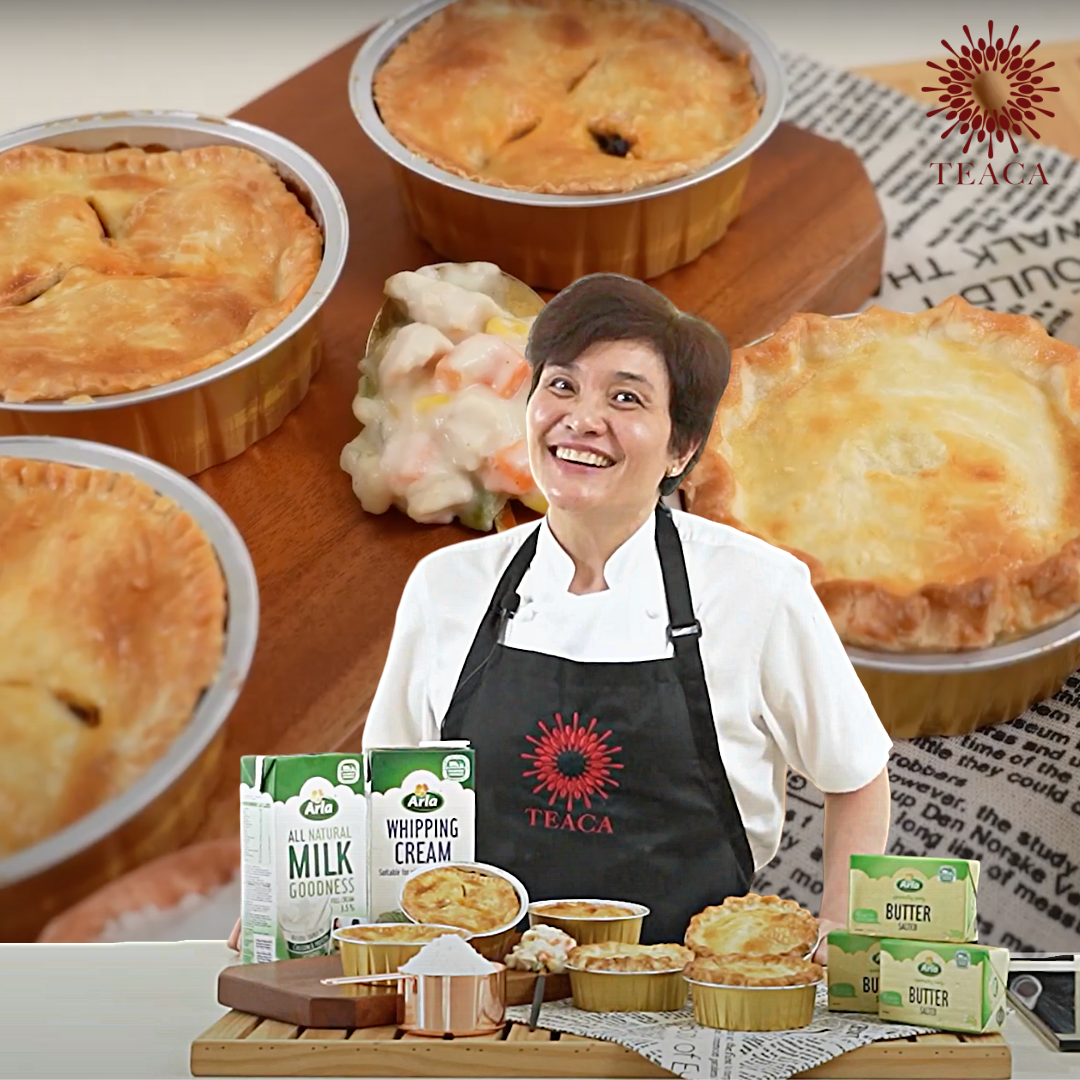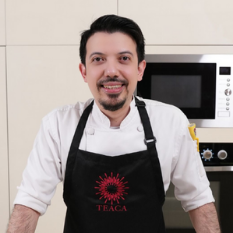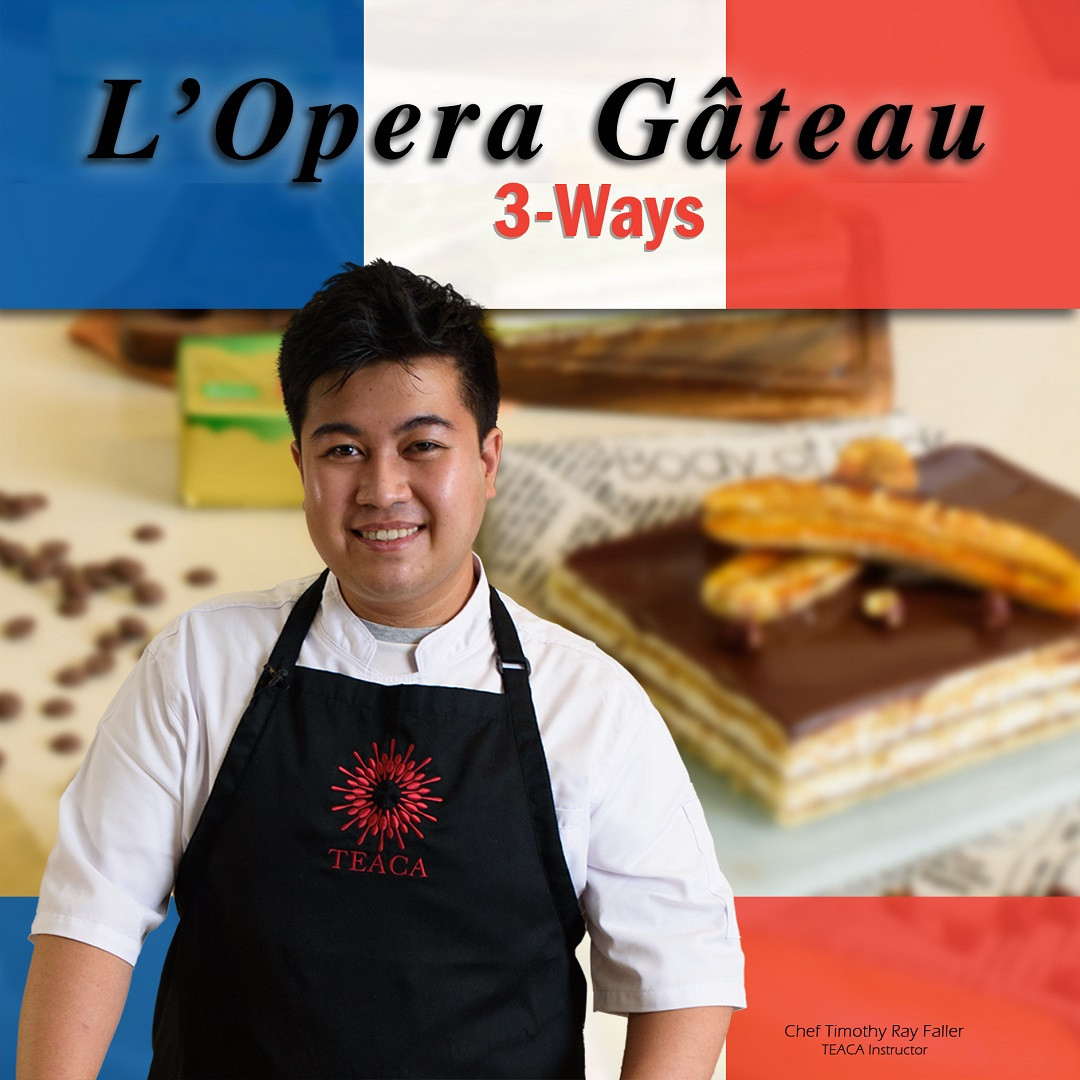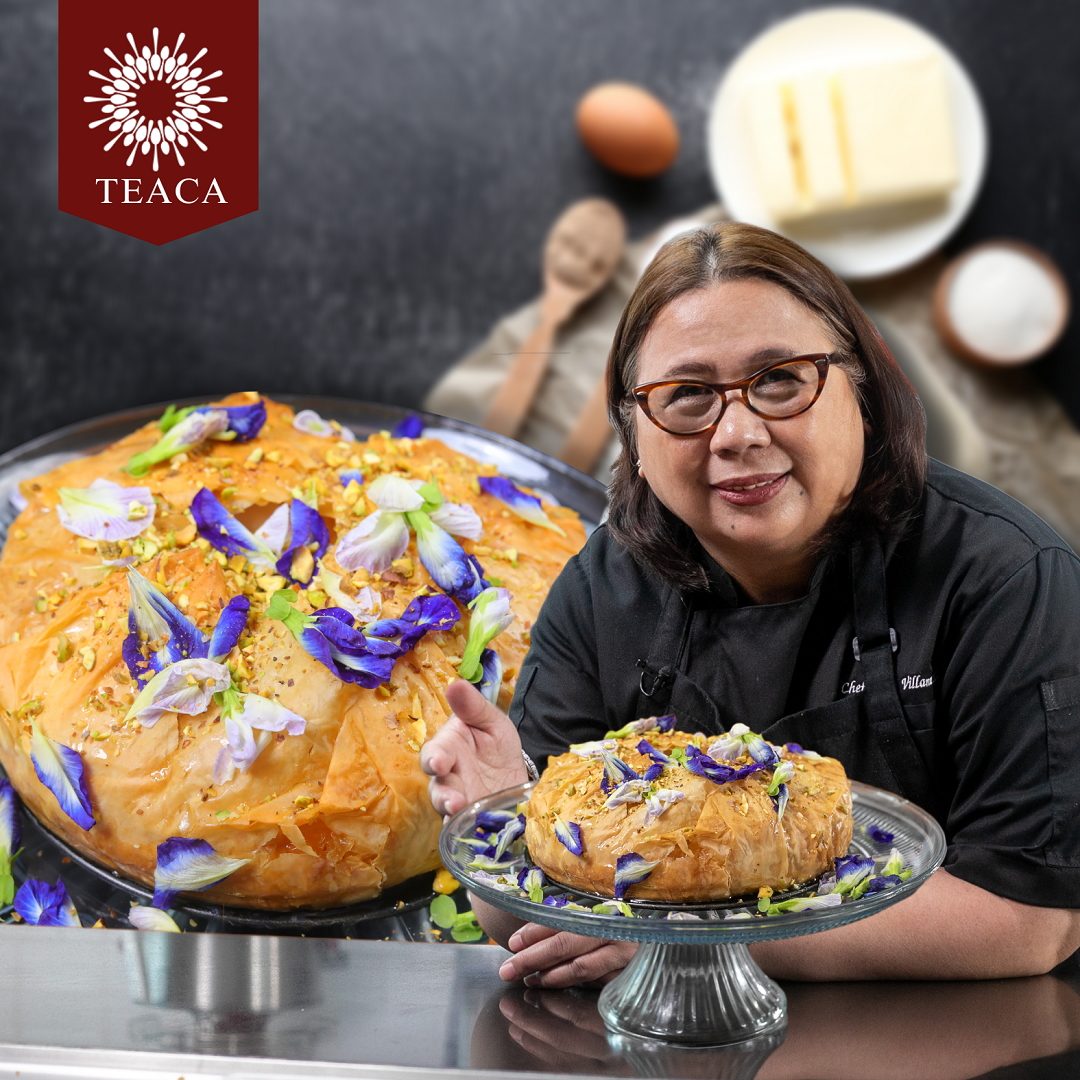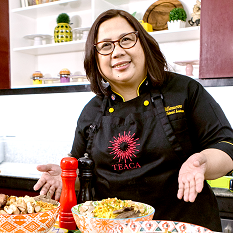Fundamentals of Professional Cookery, Major in French Culinary Arts 50% DP
This intensive 4-month blended learning Certificate Course is geared towards providing focus on the facets of French culinary arts delivered through the new Institut Disciples of Escoffier – École Culinaire Professionnelle Manila Campus at The Epicurean Academy of Culinary Arts. With a curriculum featuring the perfect balance of an extensive 160 hour In-class learning module supported by 26 units or 110 hours of self-paced online learning and a star-studded cast of French Master Chefs as Instructors, this course highlights the intricate details and techniques behind preparing and mastering one of the world’s finest cuisines.
Successful Completion of this Certificate Program will Entitle the Graduate to the Following Professional Credentials:
- The Epicurean Academy of Culinary Arts Certificate and Transcript of Records
- Institut Disciples of Escoffier – École Culinaire Professionnelle Certificate
- Rouxbe Certificate with World Association of Chefs Societies (WACS) and ACF Accreditation
- TESDA Cookery NCII Certificate
- TESDA Bread and Pastry Production NCII Certificate
- Royal Institute of Master Chefs International Certificate Level 1 in Cookery
- Royal Institute of Master Chefs International Certificate Level 1 in Bread and Pastry Production
Application Process and Requirements
At least 18 years of Age
Letter of Intent to apply for the Program
TEACA Interview Assessment Report
Application Form
Submission of Requirements:
PSA Birth Certificate
Recent School Records
2 Government Issued ID’s
Learner-Centered Methodologies
Active Learning │ Cooperative Learning │Inductive Teaching and Learning
High definition Instructional lectures (On-Line)
In-class learning with practical guided hands-on training and assessments (Face-2-Face)
Practical demonstrations/Return demonstrations (Face-2-Face)
Mentoring and coaching (Face-2-Face)
The TEACA Learner-Centered Curriculum
Shifting the Focus of Activity from Instructor to Student Learners
In the traditional approach of college teaching, most class time is spent with the professor lecturing and the students watching and listening. The students work individually on assignments, and cooperation is discouraged. Learner-centered teaching methods shift the focus of activity from the teacher to the learners. These methods include:
- Active learning, in which students solve problems, answer questions, formulate questions of their own, discuss, explain, debate, or brainstorm during class
- Cooperative learning, in which students work in teams on problems and projects under conditions that assure both positive interdependence and individual accountability
- Inductive teaching and learning, in which students are first presented with challenges. Inductive methods include inquiry-based learning, case-based instruction, problem-based learning, project-based learning, discovery learning, and just-in-time teaching.
Learner-centered methods have repeatedly been shown to be far more superior than the traditional teacher-centered approach to instruction, a conclusion that applies whether the assessed outcome is short-term mastery, long-term retention, or depth of understanding of course material, acquisition of critical thinking or creative problem-solving skills, formation of positive attitudes toward the subject being taught, or level of self-confidence in knowledge and skills.
Culinary Foundations Level 1
Knife, Knife Cuts and Knife Sharpening
Kitchen Safety
Food Safety and Sanitation
Dry-Heat Cooking Methods
Moist-Heat Cooking Methods
Stocks
Seasoning and Flavoring
The Art of Food Plating
Culinary Nutrition
Culinary Foundations Level 2
Salad and Salad Dressings
Vegetable Cookery
Egg Cookery
Soups
Sauces
Rice and Grains
Legumes
Pasta
Meat Cookery
Poultry and Game Birds
Fish and Shellfish
Fundamentals of Baking and Pastry Arts
Breads
Pastries
Chocolate
Program Schedule
4-Month Professional Certificate Program
On-Line Learning – Wednesday │ Thursday │ Friday (Self-Paced)
In-Class Learning – Saturday │ Sunday (8am to 12nn)
